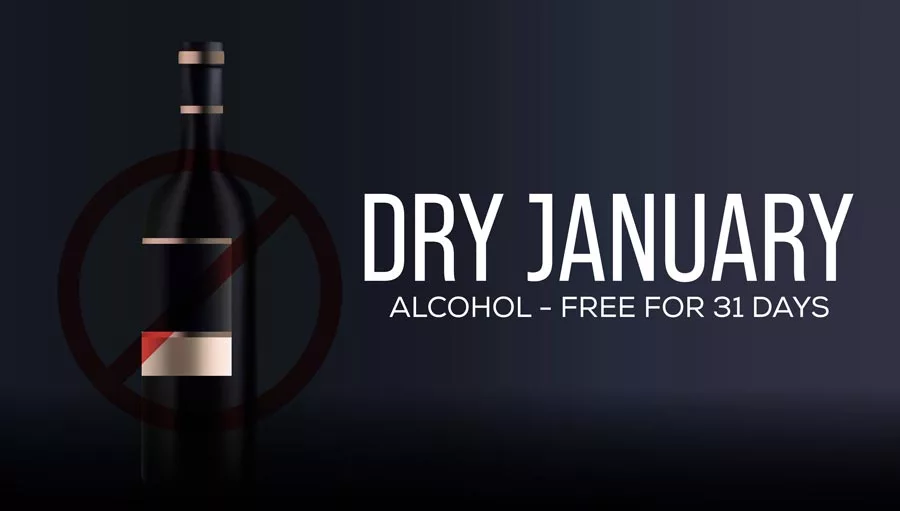What Is Moderation Management?
Table of Contents
- What Is Moderation Management?
- A Brief History of the Moderation Movement
- Abstinence vs Moderation Approaches to Recovery
- How Does Moderation Management Work?
- Core Concepts of Moderation Management
- How to Find Moderation Management Meetings
- Who Should Consider Moderation Management?
- When to Choose Residential Treatment Options
- Finding the Right Recovery Options For You
- Medically Reviewed By
Moderation management (MM)- sometimes referred to as controlled drinking- is a method of harm reduction geared towards heavy drinkers that helps reduce the negative consequences of their drinking habits.
This method focuses on limiting the individual’s alcohol intake, in an attempt to reduce instances of binge drinking and the risk of creating physical dependence on this substance.
Why Try Moderation Management?
For individuals who struggle with excessive alcohol consumption, there is generally not a singular fix for this problem. Because people have different tolerance levels and reactions to alcohol, managing an alcohol dependence requires an approach that reflects these differences.
Alcohol moderation management may also be a good option for individuals who are more prone to reckless behavior when under the influence. For example, instances of drunk driving, escalated confrontations, or impulsive choices may be drastically reduced by drinking moderately and choosing more responsible drinking behaviors.
A Brief History of the Moderation Movement
Moderation Management was founded in 1994 by a woman named Aubrey Kishline, in response to her own experiences with problem drinking and alcoholism.
Audrey Kishline and The Early Years
Kishline created the program after finding that the theories and treatment process associated with Alcoholics Anonymous and their method of abstinence were not helping her fix her drinking problems.
Kishline sought out professional advice when developing this method of treating problem drinking habits, even looking into clinical psychology in an attempt to determine the effectiveness of moderating drinking.
With the help of cognitive behavioral therapy principles, Kishline created the moderation management method in hopes of providing non-dependent problem drinkers with a harm reduction approach rather than the possibly unattainable method of quitting drinking completely.
Aubrey Kishline’s Experience with Problem Drinking
While the MM approach has proven effective for some individuals, Kishline, unfortunately, was one of the many whose relationship with drinking required complete abstinence in order to cure.
In March 2000, Kishline killed a man and his 12-year-old daughter in a drunk driving incident, for which she served almost four years in prison. Upon her release, she continued her drinking habits in an attempt to cope with her guilt, and resulting anxiety and depression. She died in December of 2014 at the age of 59, with her death being ruled a suicide.
For individuals struggling with co-occurring mental health and alcohol use disorders, choosing an abstinence-based approach to treating their heavy drinking habits is highly recommended.
Abstinence vs Moderation Approaches to Recovery
Abstinence and moderation, while similar in their goal to stop problem drinking, do not approach this goal the same way.
Abstinence vs Moderate Drinking
For individuals who have developed a severe addiction to and dependency on alcohol, their quickest, safest, and most effective option for their alcohol use disorder is through abstinence.
This option involves 12-Step Programs such as Alcoholics Anonymous, which are geared towards completely stopping alcohol consumption. For individuals who practice abstinence, their path to achieving and maintaining sobriety depends on avoiding alcohol entirely, both in the present and in the future.
It is important to note that, for those suffering from an alcohol abuse disorder, it can be dangerous (and in extreme situations, lethal) to suddenly stop drinking entirely. For individuals with this type of alcohol dependence, seeking out addiction treatment such as rehab or a medical detox may be beneficial.
It is highly recommended that individuals do not attempt to overcome their addiction without professional medical assistance. If you or a loved one is ready to seek addiction treatment, but are unsure of how to do so, call the team at Find Addiction Rehabs today. We’re here to help.
Moderation Management (MM)
Moderation and the concept of moderate drinking focuses on allowing the individual to practice self control without forcing them into practicing abstinence. Instead, they are given a level of freedom to find a workable solution to their drinking problem on their own. This is done through setting personal moderate drinking goals, and limiting their alcohol intake.
For those who do not want to completely stop drinking, but rather aim to limit instances of binge drinking and problematic drinking behaviors, the option of moderation might be more attainable and effective for them.
It is important to acknowledge that Moderation Management recognizes that, for some individuals, abstinence is the only solution for treating their alcohol use disorder.
Twelve-Step Program Alternatives
While 12-step programs such as Alcoholics Anonymous served as one of the only options for treating alcohol use disorders for quite some time, many new alternative approaches to treating excessive drinking problems have since arisen. Some of these include:
- SMART Recovery. Using Cognitive Behavioral Therapy (CBT) based approaches, SMART Recovery prioritizes self-management through the use of a “4-Point Program.”
- Refuge Recovery. Using Buddhist-based philosophies, the Refuge Recovery approach focuses on addressing the role of the human tendency to avoid difficult emotions in the development of alcohol use disorders.
- Women for Sobriety. This approach is specifically geared towards treating alcoholism in women as a symptom of gender inequality, trauma, depression, and other extenuating circumstances that are typically out of their control.
- Secular Organizations for Sobriety (S.O.S.). This is a non-religious based approach, prioritizing an individual’s own integrity and personal beliefs as their foundation for recovering from substance abuse.
- LifeRing Secular Recovery. This approach focuses on strengthening the “sober self” and weakening the “addicted self,” through supporting the individual in being their own leader in recovery from alcoholism.
How Does Moderation Management Work?
Alcohol moderation management programs typically follow a step-by-step approach when treating problem drinking or a history of alcohol abuse. These steps are usually relatively flexible and focus more on encouraging individuals with maintaining self-monitoring data and addressing their own addictive behaviors, triggers, and goals.
The majority of these programs utilize internet-based services, providing online support to individuals while ultimately encouraging them to take control of their own lives and choices. However, many do offer the option of in-person meetings. Although non 12-step rehabs often employ AA alternatives, typically moderation management is not among the offerings for clients, since the focus is on maintaining complete abstinence for those in detox and early recovery.
Core Concepts of Moderation Management
Most people who seek out moderation management programs have already tried abstinence and were unsuccessful. The MM organization was founded in hopes of providing individuals who want to improve their drinking behaviors but do not wish to (or are currently unable to) stop drinking completely with the tools and support necessary to do so.
This is done by looking at the negative consequences their drinking may have, and finding ways to address and correct these habits.
Alcohol abuse moderation management programs usually follow a step-by-step approach in their harm reduction approach, including:
- Keeping a diary.
- Observing and learning from others who practice moderation management.
- Creating a list.
- 30-Day sobriety.
- Learning skills to avoid drinking.
- Creating rules for yourself.
- Drinking in moderation.
- Honest check-ins with self.
Keeping A Diary
In order to become better aware of their habits, triggers, and drinking patterns, individuals will be encouraged to start keeping a personal diary.
They will be instructed to keep track of the times of day that they regularly start drinking, people they are more likely to drink with, what emotions they may be experiencing when they are drinking, or any other influential factors associated with their alcohol consumption.
This part of the process is simply meant for observation and reflection and does not yet require the individual to change their usual routine or habits.
Apps for Moderation
There are several apps available to help individuals keep track of their recovery or moderation, including:
- DynamiCare Health. This app uses an evidence-based program of motivation and accountability, encouraging users to take the lead in their path to achieving sobriety while helping keep track of their goals and progress.
- Drinker’s Helper. Users can track their alcohol intake and set goals, while simultaneously receiving personalized support, all while staying 100% anonymous.
- Reframe: Drink Less & Thrive. This app uses a neuroscience-based approach to assisting users in their efforts to reduce or quit alcohol consumption.
- Sober Grid. This serves as a social networking app that simultaneously provides users with goals, rewards, and achievements as they progress in their journey to sobriety.
Observing and Learning
A large part of the moderation management method is providing and receiving support from others. Thus, individuals just starting out with this method are advised to observe and learn from others who practice controlled or moderate drinking.
Taking note of how others stop and step away from drinking can help an individual implement these practices into their own life.
This may also be helpful in determining whether moderation or abstinence is a better option for the individual, depending on whether they feel capable of moderating their own drinking.
Creating a List
Reflecting on situations in which their drinking may have been harmful to themselves and others and creating a list of these instances will also be recommended to individuals who are a part of MM.
This is not meant to cause them discomfort or pain, but is meant to be carried out in an open-minded manner, with the goal of creating a level of self-awareness regarding their drinking habits.
Once they have created a list of the negative consequences associated with their alcohol consumption or even alcohol abuse, these individuals can begin to create a new list of the benefits that may come from limiting their intake with more moderate drinking.
30-Day Sobriety
Before individuals can begin on their path to moderated drinking, they will first be instructed to attempt being totally sober for 30 days. This process will include:
- Recognizing and resisting cravings for alcohol. This can help build the individual’s self-control, as well as allow them to become more in tune with their bodies.
- Gaining an objective perspective. In order to clearly see how alcohol may impair an individual’s judgment and behaviors, observing other people while they are under the influence can be quite enlightening.
For some individuals, going straight into a 30-day period of abstinence may be too difficult right away. In this case, they may want to build up to this length, starting with days and then weeks at a time.
It is also recommended that this is done under medical supervision, as individuals who have become physically dependent on alcohol may experience intense withdrawal symptoms.
“Dry” January or ‘Dryuary’
Originally started in 2013 by a U.K. nonprofit organization known as “Alcohol for Change,” this challenge calls for participants to abstain from consuming alcohol for the entirety of the month of January. While now a challenge carried out on a large scale, with growing popularity in America,
“Dry” January started out as a public health campaign geared towards promoting physical health, saving money, and raising awareness of alcohol use disorders.
Learning Avoidance Skills
Whether practicing moderation or abstinence, implementing this lifestyle will require a plan. It is important for an individual to make sure that family and friends are aware of this difference in their approach to drinking so that they can support them.
Some avoidance skills may include:
- Limiting exposure to situations that may promote drinking (i.e. going to a bar, spending time with other heavy drinkers, etc.)
- Maintaining a support system that will monitor and encourage the individual’s drinking goals.
- Learning coping mechanisms for difficult emotions and situations that do not involve drinking or the temptation of it.
Creating Rules For Yourself
Coming up with a set of personal rules during their moderation management journey can not only help increase an individual’s level of self-discipline but provide a personalized idea of what success should look like for them. This list of rules should be realistic and relatively short, and may include:
- A limit of drinks is allowed per day/week.
- Strategies the individual should implement to stop or control their drinking.
- Certain days of the week on which they can or cannot drink (“drinking day/days”).
This list of rules is meant to be changeable as individuals adjust to the moderation management process. It may even be encouraged that they update their rules as they progress, as this further promotes the process of self-awareness and reflection.
Drinking In Moderation
Once the 30-day sobriety process is complete, individuals will begin to slowly ease back into drinking. This is meant to be a gradual and mindful process, in which the individual implements what they have learned during the previous steps into their normal routine.
Now that the individual has become aware of their limits and triggers when it comes to alcohol, they should be better able to recognize and manage urges and cravings, which is essential when practicing controlled drinking.
Honest Check-Ins are Crucial For Moderation Management
It is possible (and completely human) for individuals who have recently completed a moderation management program to slip back into old habits. In these situations, it is important for them to be honest and compassionate with themselves as they reflect on what led up to this relapse of excessive drinking.
Documenting this experience in their diary and any influential factors that may have caused it can help prevent it from happening again in the future.
How to Find Moderation Management Meetings
The best way to find information on when and where moderation management meetings are being held is through the organization’s meeting directory, which provides schedules for video, phone, and face-to-face meetings.
Who Should Consider Moderation Management?
Individuals who have a drinking problem, but do not believe they are dependent on alcohol are usually the most commonly recommended to consider moderation management.
Learning how to control their drinking and recognizing when their alcohol consumption has become problematic can help these individuals avoid poor drinking behaviors, and possibly seek further help if necessary.
When to Choose Residential Treatment Options
For some individuals, it can be hard to determine when their drinking habits require more extensive treatment than just controlled drinking.
According to the DSM-5, indications of an alcohol use disorder include:
- Usage of alcohol in greater quantities or over longer periods of time than intended.
- Unsuccessful attempts to cut down or stop alcohol use.
- Excessive amounts of time dedicated to obtaining, using, and/or recovering from alcohol use.
- Experiencing cravings for alcohol.
- Interference of alcohol with the ability to handle daily responsibilities and tasks.
- Continued use of alcohol despite negative consequences resulting from this usage.
- Decrease in or complete withdrawal from participation in previously enjoyable social, recreational, or other activities.
- Using alcohol in potentially dangerous situations.
- Continued alcohol use despite knowledge of an issue with being alcohol dependent.
- Development of an alcohol tolerance, causing a need to increase the level of alcohol consumed in order to achieve the same effect.
- Withdrawal symptoms are present when alcohol consumption is stopped.
If you or a loved one can identify with any of the signs listed above, it is highly recommended to seek out addiction treatment. Call us today, and let us help you find the best treatment program for your needs.
Finding the Right Recovery Options For You
When it comes to individuals who struggle with excessive drinking, there is generally no singular correct option for managing this issue. For many, finding the right treatment and recovery options for them can be a difficult process; but it does not have to be.
Here at Find Addiction Rehabs, our goal is to help find and connect you or a loved one with addiction centers nationwide that can provide the substance abuse treatment options you need. Simply pick up the phone and call now and our dedicated staff can help you take your drinking habits and your life back under control!
Nicole Rogers is an experienced and accomplished writer with special interests in the fields of Anthropology, English, and behavioral health, and has written countless articles for newspaper publications, institutional research journals, and Find Addiction Rehabs.
Her alma mater is Florida Atlantic University in Boca Raton. Nicole hopes to spread awareness of and combat the stigmatization surrounding addiction and substance abuse treatment through her writing and work in the field.





